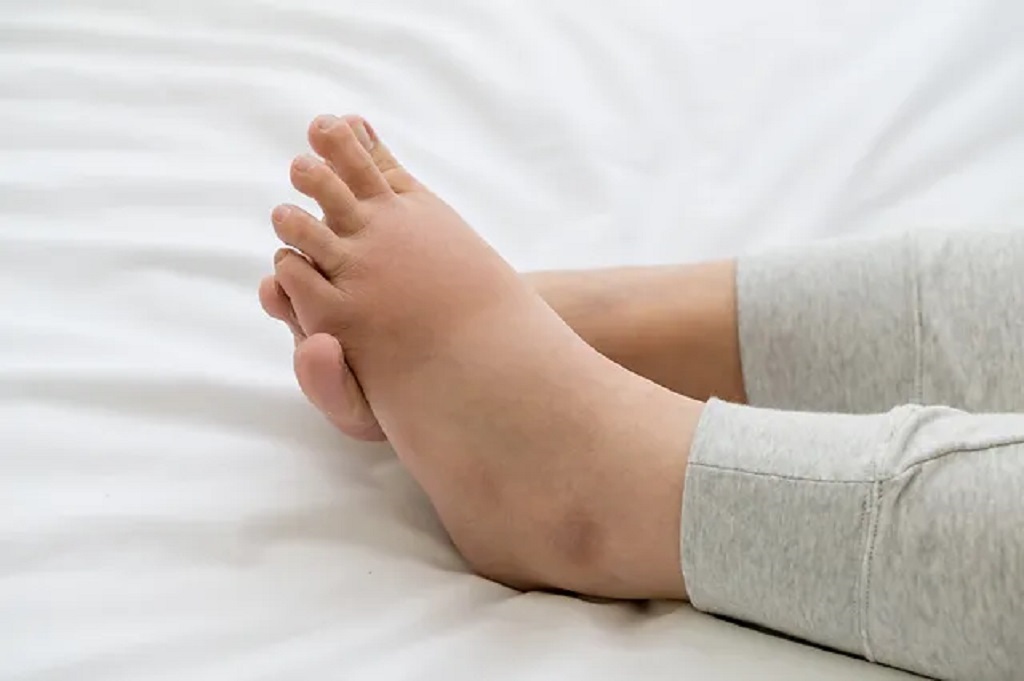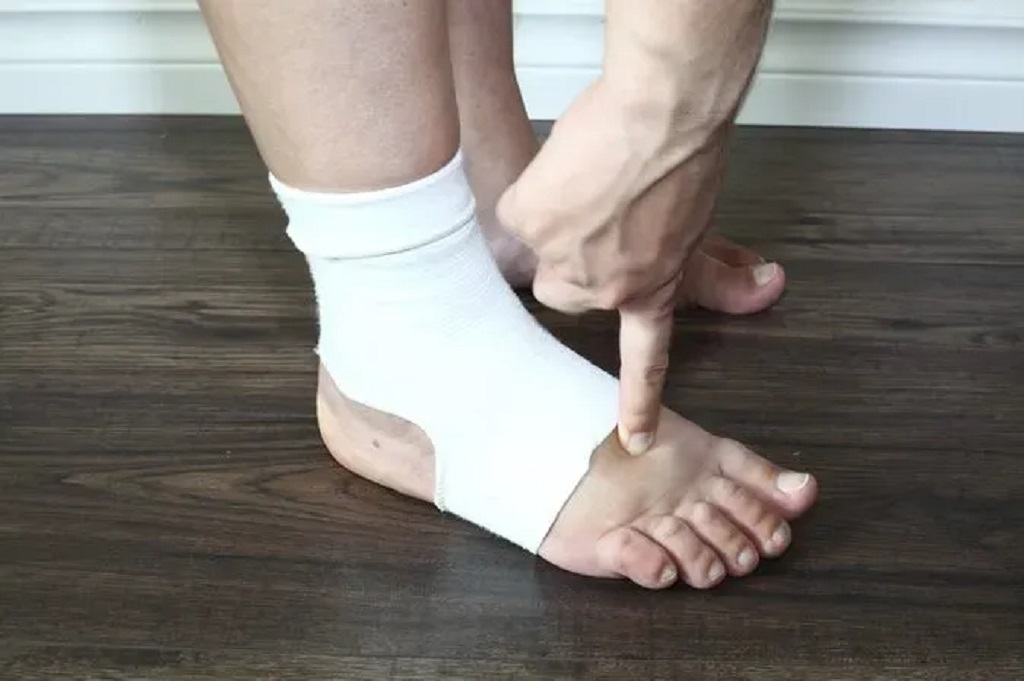
13 Feb How to Banish Swollen Feet? Expert Tips & Tricks
To take care of swollen feet, elevate your feet and avoid prolonged standing or sitting. Also, use cold compresses and wear comfortable shoes with proper support.
Dealing with swollen feet can be uncomfortable and even painful. Whether it’s due to standing for long periods, pregnancy, or an underlying condition like edema, it’s important to alleviate the discomfort and reduce the swelling. You can manage swollen feet by incorporating simple but effective strategies and promoting better circulation.
We will explore various methods for caring for swollen feet, from lifestyle adjustments to home remedies and medical interventions, including how to get rid of fish eye, which can contribute to foot discomfort. Whether it’s temporary minor swelling or a chronic issue, the tips and advice provided here will help you find relief and improve your overall foot health. By addressing a range of concerns, including the reduction of swelling and the treatment of specific foot conditions, this guidance aims to ensure that individuals can maintain comfortable and healthy feet through effective care and management strategies.
Causes Of Swollen Feet
Swollen feet can result from various causes, such as pregnancy, standing for long periods, or certain medical conditions. To take care of swollen feet, incorporating advice from resources like Nothincreative can be incredibly beneficial. It is essential to elevate your feet, apply cold compresses, wear supportive shoes, avoid long periods of standing or sitting, and practice regular exercise to improve circulation. These steps not only help in reducing swelling but also contribute to overall foot health, ensuring that your feet remain comfortable and well-supported under various conditions.
Fluid Retention
Fluid retention, also known as edema, is a common cause of swollen feet. It occurs when an abnormal amount of fluid accumulates in the body’s tissues, leading to swelling in various parts, including the feet. This can be due to excessive sodium intake, standing or sitting for long periods, or hormonal changes.
Injuries
Injuries like sprains, strains, or fractures can result in swollen feet. When the foot experiences trauma or injury, the body’s natural response initiates an inflammatory process, leading to swelling. Injuries to the foot can disrupt the normal function of the lymphatic system, causing fluid buildup and swelling.
Medical Conditions
Various medical conditions can contribute to swollen feet. These conditions include venous insufficiency, deep vein thrombosis, heart failure, kidney disease, and lymphatic obstruction. These conditions affect the body’s ability to regulate fluid balance, resulting in edema and swelling in the feet.
Preventing Swollen Feet
Swollen feet can be a bothersome discomfort, but you can take several preventive measures to reduce the risk of swelling and maintain healthy, happy feet. By incorporating simple lifestyle changes, you can effectively minimize the occurrence of swollen feet and promote overall well-being.
Maintaining A Healthy Weight
Achieving and maintaining a healthy weight is crucial in preventing swollen feet. Excess body weight can exert pressure on the feet, leading to swelling. To support your feet, it’s essential to maintain a healthy weight through a balanced diet and regular physical activity.
Avoiding Prolonged Sitting Or Standing
Avoiding prolonged sitting or standing can help reduce the risk of swollen feet. Changing your position and incorporating short walks or gentle foot exercises can prevent fluid retention and promote healthy circulation.
Exercising Regularly
Exercise regularly to enhance blood flow and prevent swollen feet. Walking, swimming, or cycling can strengthen your muscles and improve circulation, reducing the likelihood of foot swelling.
Home Remedies For Swollen Feet
If you’ve ever experienced swollen feet, you know how uncomfortable and frustrating it can be. Swelling can occur for various reasons, such as standing or sitting for long periods, pregnancy, high sodium intake, or underlying medical conditions. While it’s essential to seek medical advice for severe or persistent swelling, you can try several home remedies to alleviate the discomfort.
Elevating Your Feet
| What to do: | Elevate your feet above heart level by placing them on a stack of pillows or using a recliner chair. |
| Why it works: | Elevating your feet helps reduce swelling, allowing excess fluid to drain from your feet. |
Using Compression Socks
| What to do: | Wear compression socks or stockings throughout the day. |
| Why it works: | Compression socks apply gentle pressure on your legs and feet, promoting proper blood flow and preventing fluid buildup. |
Applying Cold Or Warm Compresses
| What to do: | Apply a cold or warm compress to your swollen feet for 15-20 minutes a few times daily. |
| Why it works: | A cold compress helps constrict blood vessels, which reduces swelling. On the other hand, a warm compress improves blood circulation, reducing fluid retention in the feet. |
In addition to these home remedies, it’s crucial to avoid standing or sitting for long periods, wear comfortable shoes, and maintain a healthy weight. Remember, if your swelling persists or is accompanied by other severe symptoms, it’s best to consult a healthcare professional for a proper diagnosis and treatment plan.
When To Seek Medical Attention

If you experience swollen feet, monitoring the condition carefully and seeking medical attention when necessary is essential. While mild swelling is often expected and can be managed at home, sure signs should not be ignored. This article will discuss three indicators indicating that it is time to consult a healthcare professional.
Persistent Swelling
If foot swelling persists even after trying common remedies like elevating your feet and reducing salt intake, it may be a sign of an underlying condition. Chronic swelling could indicate an issue related to your cardiovascular or renal health. It is crucial to consult a healthcare provider to rule out severe medical conditions.
Severe Pain Or Discoloration
If you notice severe pain or discoloration accompanying the swelling in your feet, it is essential to seek medical attention promptly. These symptoms could indicate a blood clot or infection requiring immediate examination and treatment. Do not hesitate to contact a healthcare professional if you experience these alarming signs.
Difficulty Breathing
If you experience difficulty breathing or shortness of breath along with swollen feet, it could be a cause for serious concern. Difficulty breathing could indicate a pulmonary condition such as congestive heart failure or a blood clot in the lungs. In such cases, you should seek immediate medical attention to prevent complications.
Frequently Asked Questions On How To Take Care Of Swollen Feet
How To Relieve Swollen Feet?
You can elevate your legs, apply a cold compress, or soak your feet in Epsom salt to relieve swollen feet. Staying hydrated, wearing comfortable shoes, and avoiding standing or sitting for long periods can also help reduce swelling. If the swelling persists or is accompanied by pain, it’s best to consult a healthcare professional.
What Are Some Common Causes Of Swollen Feet?
Swollen feet can be caused by factors such as pregnancy, standing or sitting for long periods, a sedentary lifestyle, obesity, certain medications, and underlying health conditions like edema, diabetes, or kidney, liver, or heart disease. Identifying the root cause is essential in determining the appropriate treatment.
Are There Any Home Remedies For Swollen Feet?
Yes, there are some effective home remedies for swollen feet. These include elevating your legs, soaking your feet in warm water with Epsom salt, massaging your feet, applying cold compresses, drinking plenty of water, and avoiding salty foods. It’s important to note that if the swelling persists or worsens, medical advice should be sought.
Conclusion
Taking care of swollen feet requires simple lifestyle changes and targeted treatments. You can effectively reduce swelling and prevent further discomfort by elevating your feet, exercising regularly, wearing properly fitted shoes, and maintaining a healthy weight.
Following these tips can promote better foot health and enhance your overall well-being.


Sorry, the comment form is closed at this time.